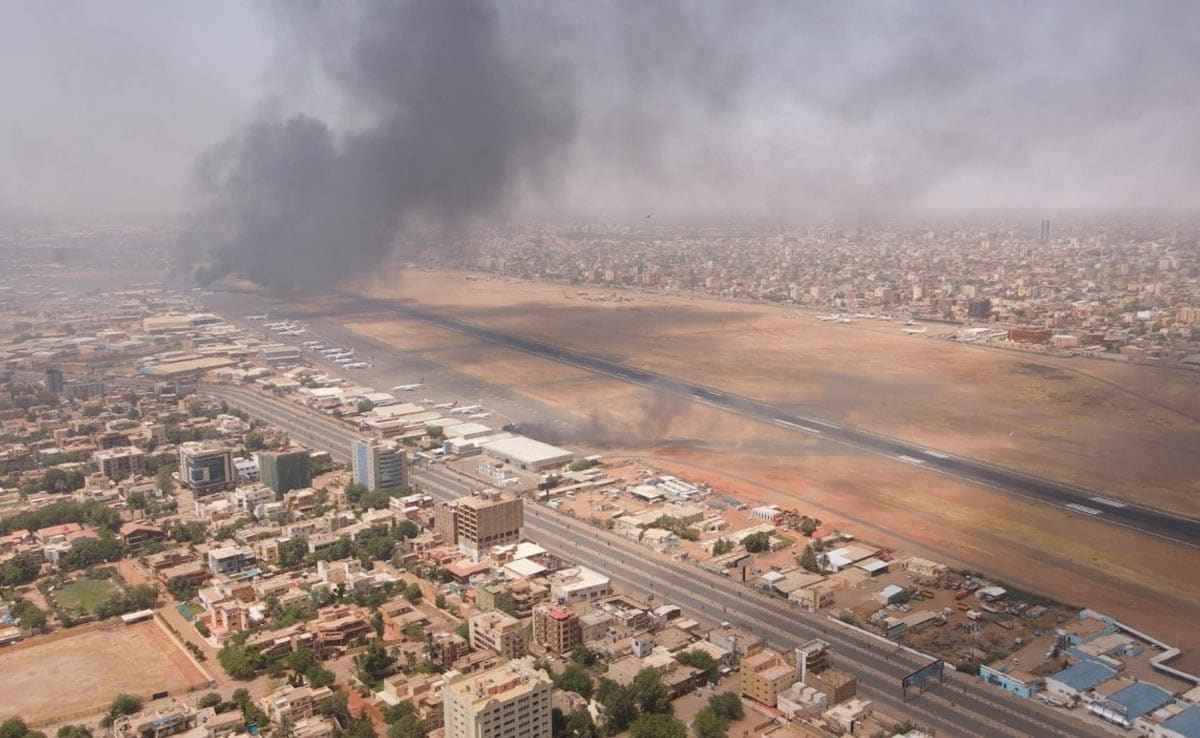Sudan Crisis: Fierce clashes continue; there is still no end to the street battles in Sudan. The ongoing power struggle between Sudan’s top generals—fighting between troops loyal to Sudanese Armed Forces (SAF) leader Fatttah al-Burhan and Rapid Support Forces (RSF) under Mohamed Hamdan Daglo.
The war on the streets of the capital city, Khartoum, has now rippled into its twin city, Omdurman, further intensifying the turmoil in Sudan. Significant numbers of international mediators, like the African Union, the United Nations, Arab nations, etc., are trying to persuade the warring parties to enter into peace talks.
The situation of human rights
A week ago, the International Committee of the Red Cross reported the rise in human tolls and destroyed infrastructure, exacerbating the situation in the national capital.
Damaged power infrastructure has left medical facilities without adequate power support, and medical supplies are running low. While multiple aid agencies working on the ground had to halt their operations and evacuate employees.
The World Health Organization (WHO) reported on April 27th that over 60 percent of health facilities are closed and only 16 percent are working as normal in Khartoum.
Fighting has entered its third week in Sudan, despite intensifying pressure from international mediators to maintain another 72-hour ceasefire. Heavy use of explosives has turned the streets into war zones, affecting civilians, the environment, and the infrastructure of the region and causing thousands of people to flee.
#Sudan's Human rights situation dramatically deteriorating. Hundreds of thousands have fled. Thousands of others trapped by the fighting & face acute shortages. We call on the parties to immediately end hostilities. Protecting civilians must be paramount https://t.co/mWw4W66NON pic.twitter.com/nBlfqwub7l
— UN Human Rights (@UNHumanRights) April 28, 2023
Though temporary and reportedly in fragile condition, the ceasefire is a potential lifesaver for those who have been trapped in their homes without supplies or access to food, water, or health care.
It has been reported that many have fled to neighboring safe zones. The remaining people are living in misery in their own homes, with fighters looking around the streets, looting and vandalizing buildings, shops, and offices.
ICRC’s regional director for Africa, Patrick Youssef, said: “Khartoum is a densely populated city of millions. When heavy explosive weapons are used, street corners become battle fields, and civilians pay the greatest price. Hundred have been killed and thousands have been injured, a heart-breaking outcome of this violence.”
Humanitarian challenges
Persisting attacks on the health care facilities have jeopardized the situation, disrupting support mechanisms for around 50,000 children suffering from severe acute malnutrition.
Sudan hosts more than a million refugees from South Sudan, Ethiopia, and Eritrea. Devastating situations are forcing hundreds to flee, and growing numbers of those securing shelter in the existing refugee camps are bound to create new humanitarian challenges.
According to estimates from the respective countries and the United Nations, nearly ten thousand people have crossed the border into South Sudan. In addition, there have been an unknown number of arrivals in neighboring states like Egypt, the Central African Republic, and Ethiopia.
Food security has been an issue of concern in the region. Now, amid the crisis, millions across the region could be plunged into hunger. However, the pace at which the situation is unfolding is depriving the most vulnerable of desperately needed assistance at this juncture.
As humanitarian operations have reportedly been dealing with security threats along with incidents like looting of World Food Programme (WFP) supplies from warehouses.
The spill over effect has started to hamper economic ties, being the major supplier of essential goods to the Central African Republic, especially during the rainy season, which starts in April and goes around until October. Since the conflict erupted, inflation has been rising; reportedly, some essential items such as sugar and millet have doubled in cost in CAR.
Meanwhile, several countries have started evacuation operations to bring their citizens home safely, including India, France, Egypt, etc.
Under “Operation Kaveri” another flight of 229 people from Sudan arrived in Bengaluru today. According to official data, Sudan’s total evacuees stand at 1,954.

